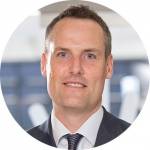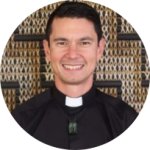More than good intentions
Scholarship recipient and Chair of Pregnancy Help, Rachel Vicars MInstD, says finance course gave her confidence to ask questions.

OPINION: New Zealand has many large foundations, charitable trusts, religious groups and family offices which have been endowed with funds. These endowments have often grown to tens or hundreds of millions of dollars; together those groups hold assets worth many billions of dollars.
The mood among the governance of such groups often, to quote Gandalf in The Lord of the Rings: “Keep it secret, keep it safe”.
They are understandably wanting to preserve the capital in their funds for the rainy days that may come. Guess what – it’s raining.
We are surrounded by needs including housing, mental health, food, infrastructure for charities, and the staff to do the work. We are at an inflexion point socially which requires a strategic choice to spend now so we can safeguard the future.
At the same time, the trustees we mentioned are risk averse, often putting money into low-interest rate term deposits which are safe but have little impact. In fact, in our view endowments have sometimes grown too big and some trusts should be distributing more and reducing capital so that the purposes are being advanced.
We also think trustees have new legal freedom to align their investments so that they match and enhance their organisation’s purposes.
Trustee duties have been cited as justification to distinguish between investment activities on the one hand, which are approached conservatively, and distribution activities. But times have changed and we need to alter views on this. The new factors that change the ecosystem are:
For many years we have, together, been growing more and more disillusioned with the stories of trustees who sit on tens of millions and revert to the “keep it safe, keep it hidden” sort of mindset. They have been unwilling to take any risk with the funds and they point to trustee duties as the reason.
Of course, the context will be different in each situation – factors like what a trust deed says, the wider context of being part of a movement, the SIPO (statement of investment policy and objectives) terms. But the principle is the same - it’s time to sit up and look at this because we think trustees might actually have a duty to use those funds to fulfil their purposes and not just lock them away in the most risk-averse term deposits and other investments.
For trustees, let’s look at this with open eyes and a willingness to reconsider old thought processes. In our view, trustees could consider more than financial gain when thinking about investing – they could consider the purposes, objects and context of the trust. Now is the time to look at where funds are invested and question if they are having maximum impact or could be better used to advance the purposes of the trust as well as providing financial returns.
An invitation to be on the right side of history beckons. What would happen if the billions currently invested in “safe” places were to be used to maximise impact? For the fulfilment of their purposes it is critical that trustees keep their eyes open to new developments and stay open to embracing new ways of investing, prioritising impact.
It’s raining now – let’s respond to the need.

Steven Moe MInstD is a partner at Parry Field Lawyers based in Christchurch and works in corporate law providing advice to companies, not-for-profits and social enterprises. He is on five boards and for one is chair - Community Finance which has raised $93 million for social housing. He is a member of the Edmund Hillary Fellowship, the XRB Advisory Panel and hosts Seeds - a podcast with 300+ long form conversations on governance, leadership and entrepreneurship. Steven is also a facilitator on the Company Directors Course.

Dr Lyndon Drake MInstD (Ngāti Kuri, Ngāi Tahu) serves as Archdeacon of Tāmaki Makaurau in the Māori Anglican bishopric of Te Tai Tokerau. Lyndon has recently completed a DPhil in Theology at Oxford on economic capital in the Hebrew Bible/Old Testament, and has degrees in science and commerce (Auckland), a PhD in computer science (York), two other degrees in theology (Oxford), and a number of peer-reviewed academic publications in science and theology. Lyndon has written “Capital Markets for the Common Good: A Christian Perspective”. Until 2010, Lyndon was a Vice President at Barclays Capital, trading government bonds and interest-rate derivatives. Since then, he has served in church ministry, as well as teaching theology and serving in a range of Christian leadership roles. He sits on a number of boards, including as chair of Te Whare Ruruhau o Meri Trust Board.
The views expressed in this article do not reflect the position of the IoD unless explicitly stated.
Contribute your perspectives and expertise on an area of governance to the IoD membership and governance community. Contact us mail@iod.org.nz